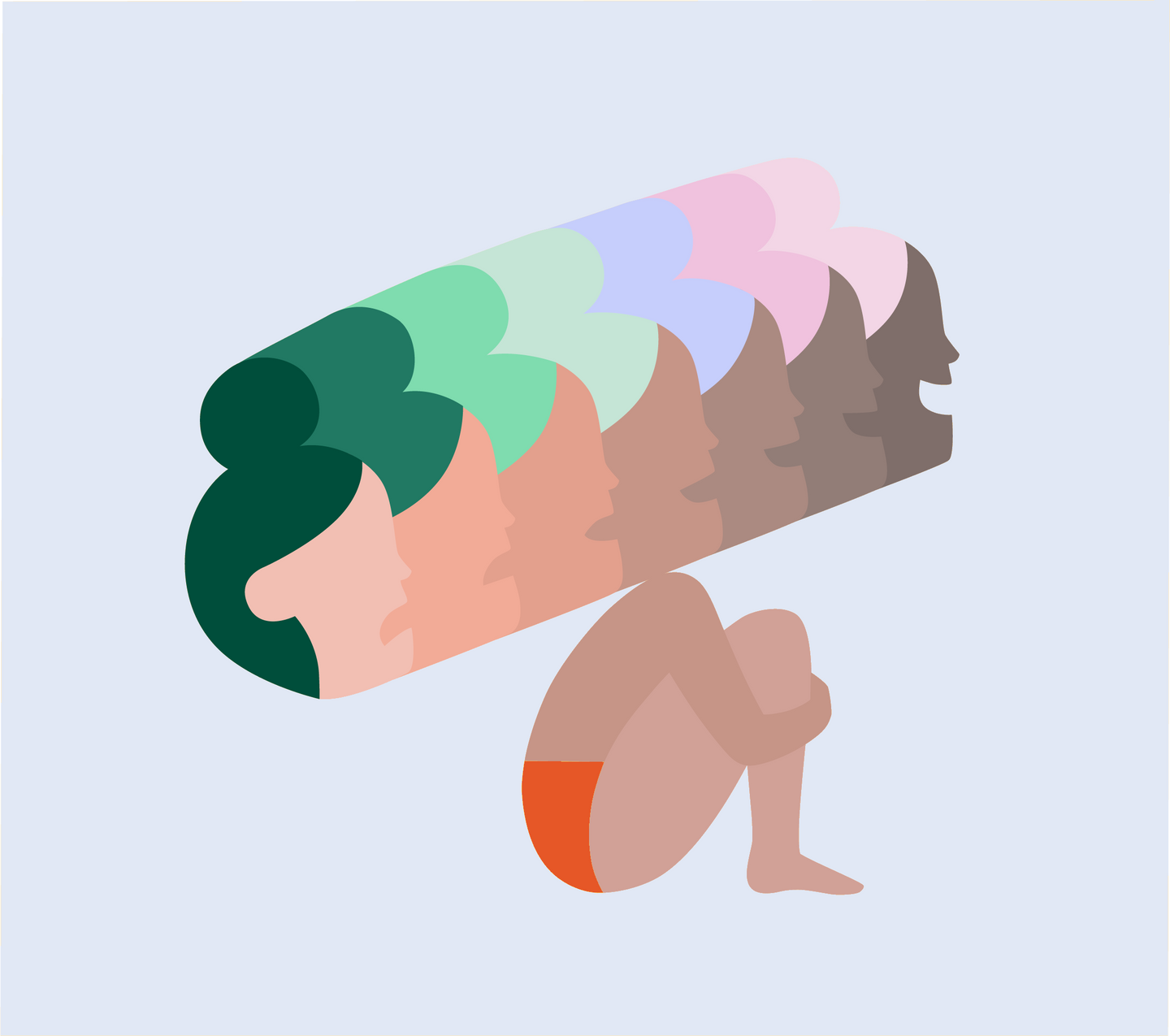What is this?
During pregnancy, a variety of hormones increase dramatically, peak during childbirth, and then crash back down to pre-pregnancy levels immediately after birth. Since these hormones are linked to emotional states, someone who has just given birth typically experiences an emotional cataclysm. Some call this the “baby blues,” but we believe this diminishes the experience and its severity, and doesn’t appropriately set expectations for what is typical and normal.
How common is it?
Very common. In fact, most people (about 80%) experience some degree of emotional upheaval after childbirth — ranging from mood swings and crying spells to a spike in anxiety and difficulty sleeping. You may feel overwhelmed at times, and at others, euphoric. Simply being aware that you may experience a rollercoaster of emotions right after giving birth will help normalize the intensity of what you may be feeling during those first few weeks. It’s also vital that you (as well as family and friends) keep an eye on your symptoms as time goes on, so that you can see a professional if you begin to feel worse or do not improve.
How long does it last?
The postpartum emotional rollercoaster does not have a set timetable. People with postpartum depression (more on that below) will experience more serious symptoms that do not go away after the first few weeks, or begin to get worse after that time.
Why is this happening?
People who have just given birth have higher levels of an enzyme that breaks down neurotransmitters such as dopamine, norepinephrine and serotonin. These neurotransmitters — especially serotonin, which is known as the “happy chemical”— regulate your mood, sleep cycle and appetite. And low levels of serotonin are linked with feelings of sadness, irritability and trouble sleeping.
An abrupt decrease in progesterone — which happens right after delivery — is associated with anxiety. Even your thyroid hormones can zig-zag during pregnancy and after childbirth, in part because of increases in the stress hormone cortisol. Cortisol surges may lead to postpartum thyroid issues, which can have symptoms including anxiety, irritability, fatigue, insomnia and heart palpitations.
All of these changes are happening against a backdrop of sleep deprivation, which is associated with a myriad of physical and emotional issues. That’s why taking care of your psychological health — and keeping close tabs on how you’re feeling — is a critical aspect of birth and pregnancy recovery.
When should I be worried?
Some new parents (estimated around 7-20%) experience a more severe, long-lasting form of depression known as postpartum depression (PPD) — symptoms can include:
- Depressed mood or severe mood swings; excessive crying
- Difficulty bonding with your baby
- Withdrawing from family and friends
- A change in appetite loss of appetite or eating much more than usual
- Inability to sleep (insomnia) or sleeping too much
- Overwhelming fatigue or loss of energy
- Reduced interest and pleasure in activities you used to enjoy
- Intense irritability and anger; fear that you're not a good parent; hopelessness; feelings of worthlessness, shame, guilt or inadequacy
- Diminished ability to think clearly, concentrate or make decisions
- Restlessness
- Severe anxiety and panic attacks; thoughts of harming yourself or your baby, or recurrent thoughts of death or suicide.
Anyone can experience PPD, but some people are more vulnerable. If you’ve suffered from depression during or after a previous pregnancy, have struggled with depression at another time in life, or if you experienced a stressful or traumatic event during pregnancy or shortly after birth (including a difficult or traumatic birth), you may be more likely to have PPD. An online questionnaire can be a good first step in helping you or your friends and family determine whether or not you have PPD.
There are other serious disorders that can also occur during the postpartum period, including postpartum obsessive-compulsive disorder, postpartum anxiety and postpartum stress disorder. According to the Anxiety and Depression Association of America, 3-5% of those who have just given birth will experience postpartum OCD, 10% will experience postpartum anxiety and about 9% will have postpartum PTSD.
Symptoms and signs of PPD should be taken very seriously. If your feelings are making it hard to care for your baby or complete everyday tasks, or if you are having thoughts of harming yourself or your baby, go to a hospital ER or see your doctor immediately.
What can be done about PPD?
There are a variety of methods for treating postpartum mood disorders, including but not limited to:
Counseling/talk therapy
Talking one-on-one with a therapist can help you manage your feelings and come up with coping strategies. One method is cognitive behavioral therapy (CBT), which helps people recognize and change their negative thoughts and behaviors.
Medication
Your doctor may suggest antidepressant medications, which act on the brain chemicals that are involved in mood regulation. Research is also being done on the use of estrogen as a postpartum antidepressant. There are several antidepressants that are safe to take while breastfeeding if this is a concern.
Have helpful information handy
Want to learn more about birth recovery?
Surprised by what you've read? There's a lot that happens during postpartum, and it can be overwhelming. Bodily's Guidebooks lay it out and answer your questions in an easy and digestible way — both for you and your supporter.
---
If you have a history of depression, or if you have been depressed or anxious throughout your pregnancy, you should talk to your doctor about possibly starting treatment (or putting a plan of support into place) before giving birth.




